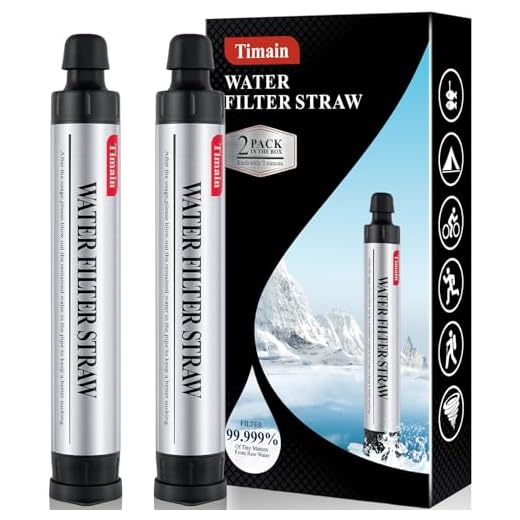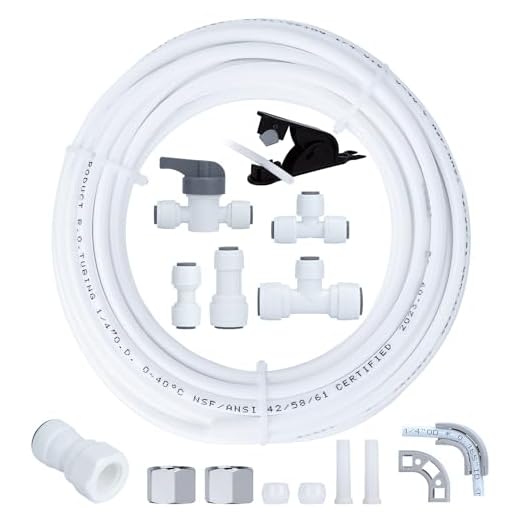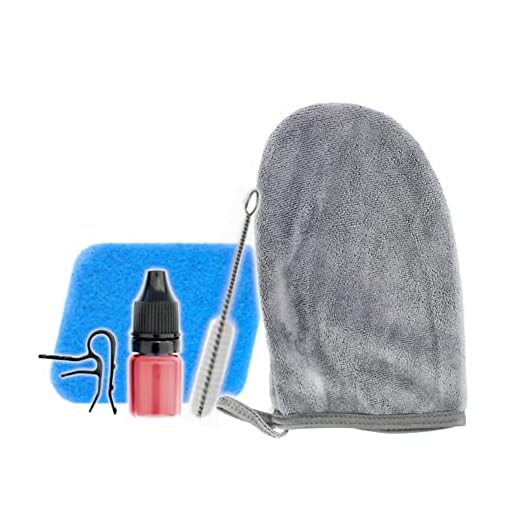




Keeping System in Optimal Condition
Regular maintenance is essential for ensuring the longevity of your water filter system. Begin by checking filters and replacing them according to the manufacturer’s guidelines. Neglecting this routine can lead to a decrease in water quality and flow rate. Keeping track of replacement dates can help prevent issues that arise from overly clogged filters.
Another important aspect is to keep the system clean. Bacteria and other contaminants can build up inside the unit, causing malfunctions and affecting water quality. Periodically flushing the system with a suitable cleaning solution can help minimize these risks. Ensure that all components are securely fastened and inspect for any signs of wear or damage during maintenance checks.
Recommended Practices for Longevity
Regular maintenance is essential for extending the life of any water filter system. Changing filters according to the manufacturer’s guidelines prevents reduced efficiency and ensures clean water. It’s also important to inspect the system for leaks or blockages. Keeping the unit clean and free from sediment buildup enhances performance, allowing it to work effectively for longer periods.
Monitoring water quality on a consistent basis helps identify any potential issues early on. If the taste, odor, or appearance of the water changes, it may indicate that the filter needs immediate attention. Using water softeners or conditioners can also help reduce mineral buildup, contributing to a longer lifespan for the filtering components. Investing time in these practices ensures that the system continues to function optimally, providing reliable access to clean water for your home.
Understanding Water Flow Rates
Water flow rates play a crucial role in the effectiveness of your water filter system. These rates measure how much water moves through the system over a set period, typically expressed in gallons per minute (GPM). High flow rates can enhance the convenience of getting filtered water quickly. However, an excessively high flow rate might compromise the filter’s ability to adequately purify the water. Understanding the appropriate flow rate for your specific filter system helps ensure optimal performance and longevity.
It is important to recognize that different filtering systems are designed to operate within certain flow rate parameters. If the flow rate exceeds these specifications, it can lead to reduced filtration efficiency and possible damage to the system. Conversely, too low of a flow rate might indicate clogs or issues within the filter, affecting water quality. Monitoring flow rates regularly can aid in maintaining your filter’s performance while providing peace of mind regarding the purity of your drinking water.
How Flow Rates Affect Performance
Flow rates play a crucial role in determining how effectively a water filter system performs. A low flow rate may indicate clogs or blockages within the filter, leading to inadequate filtration and potentially allowing impurities to pass through. Conversely, a flow rate that is too high can overwhelm the filter’s capacity, reducing its efficiency and lifespan. Regularly monitoring these rates helps users identify any issues early and ensures the filter is working within its optimal parameters.
Understanding the specific flow rate specifications for your water filter is essential for achieving the best results. Different systems are designed to handle varying volumes of water, and operating outside these limits can compromise filtration quality. Adjusting the water pressure or making necessary repairs can help maintain an ideal flow rate, thus ensuring the filter continues to function effectively. Regular assessment of these factors contributes to the overall health and performance of the water purification system.
Proper Installation Techniques
When setting up a water filter system, ensuring a secure installation is crucial for optimal performance. Begin by reviewing the manufacturer’s guidelines. These instructions provide specific details about the assembly process, materials required, and any additional considerations unique to your system. Proper alignment of the filtration components is essential to prevent leaks. Ensure all connections are tight and use plumber’s tape where necessary to enhance seal integrity.
Choosing the right location for your water filter is equally important. Ideally, it should be installed where access to plumbing and electrical sources is convenient. Avoid placing it in areas prone to fluctuations in temperature or excessive moisture, as these conditions can shorten the lifespan of the components. It’s beneficial to check for any obstructions that might interfere with maintenance or replacement of filters. A well-planned installation not only enhances the unit’s functionality but can also reduce future repair needs.
Ensuring a Secure Setup
A secure installation of your water filter system is crucial for optimal performance and longevity. Begin by selecting a stable, dry location for the unit. Ensure the area is free from any potential hazards or obstacles that could cause damage. When positioning the filter, consider the proximity to plumbing fixtures and water supply lines for easier access and maintenance.
Utilize sturdy mounting brackets and follow the manufacturer’s instructions for securing the unit in place. Tighten all connections to prevent leaks, as even minor drips can lead to performance issues over time. Checking the integrity of the installation periodically can help identify any emerging problems before they escalate, ensuring the system continues to function effectively.
FAQS
How often should I replace the filters in my water filtration system?
It is generally recommended to replace filters every 6 to 12 months, depending on usage and the type of filtration system. Always refer to the manufacturer’s guidelines for specific recommendations.
What are some signs that my water filter system needs maintenance?
Signs that your water filter may need maintenance include reduced water flow, unusual tastes or odors in the water, and visible sediment or discoloration in the filtered water.
Can I install a water filter system myself, or do I need a professional?
Many water filter systems are designed for easy DIY installation, but if you are unsure or uncomfortable with plumbing work, it’s best to hire a professional to ensure a secure and effective setup.
How does the flow rate of my water filter affect its performance?
The flow rate can impact the efficiency and effectiveness of your water filter. A slower flow rate often allows for better filtration, while a higher flow rate may reduce the system’s ability to remove contaminants.
What maintenance practices can I follow to extend the lifespan of my water filter system?
To keep your water filter system running smoothly, regularly check and replace filters as needed, clean the system components, monitor water pressure, and ensure proper installation and setup.
Related Links
What to Check During Your Water Filter Maintenance Routine
Essential Routine Maintenance Tasks for Water Filters
Roundup of Best Practices for Maintaining Different Water Filters
Top 10 Maintenance Tips for Your Water Filter System
Review of Popular Routine Maintenance Products for Water Filters

